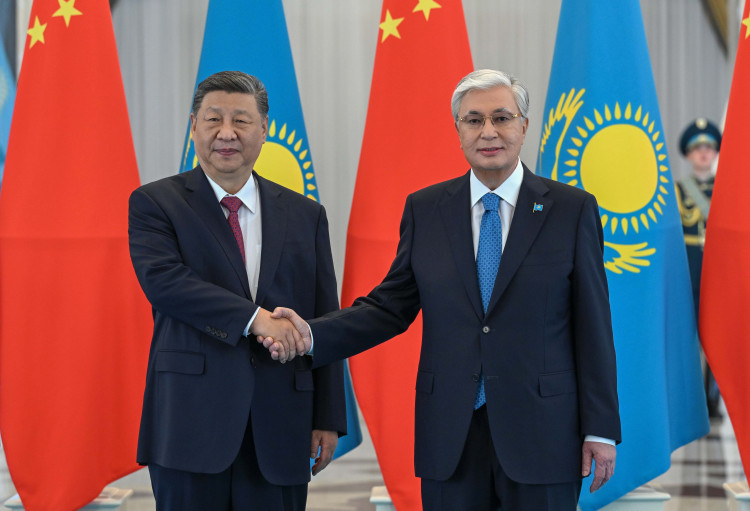Xi Jinping Deepens Ties with Kazakhstan and Central Asia
The deepening ties between China and Kazakhstan, as well as the broader Central Asian region, are driven by a shared vision for cooperation and development. The signing of 24 agreements and the upcoming China-Central Asia Summit are key milestones in this process, and are expected to have a lasting impact on the region's economic and strategic landscape.

Chinese President Xi Jinping's official visit to Kazakhstan has resulted in the signing of 24 agreements, strengthening the strategic partnership between the two nations and paving the way for deeper cooperation in the Central Asian region. The agreements cover a range of sectors, including energy, aerospace, and digitalization, and mark a significant milestone in bilateral relations.
Kazakhstan's President Kassym-Jomart Tokayev emphasized the country's commitment to its friendship with China, citing their shared history of cooperation without conflicts or obstacles. The two leaders discussed trade, cultural relations, and cooperation in nuclear energy, with Kazakhstan set to build several nuclear power plants with the help of Chinese company CNNC. The visit has been declared the Year of China Tourism in Kazakhstan, aimed at strengthening mutual trust and deepening bilateral cooperation.
The upcoming second China-Central Asia Summit is expected to draw a new blueprint for future cooperation between China and Central Asian countries. The summit aims to open up new space for Belt and Road cooperation and build an even closer China-Central Asia community with a shared future. China-Central Asia cooperation has been fruitful, with trade between China and Central Asian countries reaching a record high of 674.15 billion yuan ($94 billion) in 2024, up 116% from 2013.
The Belt and Road Initiative (BRI) has been a key focus of China-Central Asia cooperation, with the two sides implementing signature projects to boost development and improve people's lives. High-quality BRI cooperation has expanded to digital economy and green transition, and people-to-people and cultural exchanges have increased, bringing the two sides closer together. Chinese President Xi Jinping's visit to Kazakhstan marks the second China-Central Asia Summit, a high-stakes diplomatic gathering aimed at deepening Beijing's economic and strategic ties with the region.
The summit is seen as a test of China's ability to balance its relationships with the US and Russia in the region, and its outcome is likely to have significant implications for the future of China-Central Asia cooperation. With China committed to an estimated $26bn in investments in Kazakhstan and increasing its engagement with Central Asian countries, the region is poised to play an increasingly important role in China's Belt and Road Initiative.